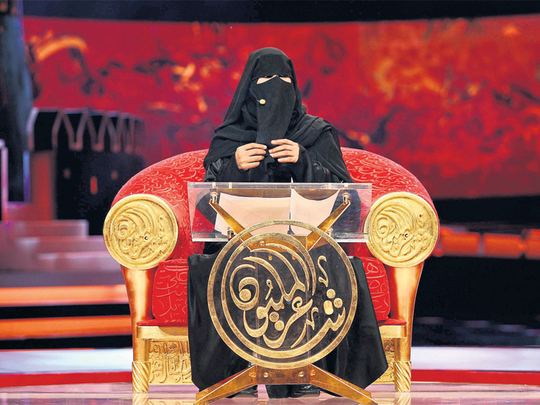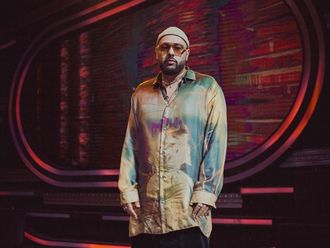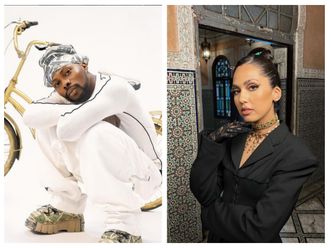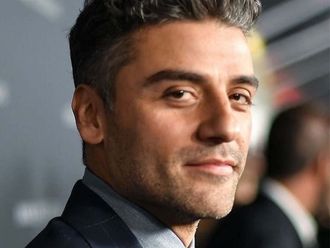
When a Dh15 million poetry contest gets underway tomorrow, it will both promote the UAE culture and highlight how women are making strides in male-dominated areas.
Forty-eight participants have made it to the finals of the seventh Millions' Poet contest, organised by Abu Dhabi's Cultural Programmes and Heritage Festivals Committee (CPHFC). The event seeks to preserve Nabati poetry.
The oral literary tradition in the Bedouin language is a vital component of the region’s heritage. A thousand years old heritage, Nabati poetry played a major historical, social, cultural, even political role among the Arab desert tribes. To ensure its survival, CPHFC launched the Millions' Poet 10 years ago with cash awards that surpass most other literary competitions worldwide.
This year’s contest has attracted thousands of applicants for this season, not just from the region, but as far as US, Europe and Africa.
"The 48 poets are a pillar of Arab and Gulf culture," stressed His Excellency Staff Major General Pilot Faris Khalaf Al Mazrouei, Chairman of CPHFC. "Previous seasons attracted much attention locally and internationally; this new season is particularly characterised by increased participation of young poets, which is very promising for the future and preservation of Nabati poetry."
Competition rules mandate that only 48 applicants can make it to the finals, and they are going to be revealed in the lived broadcast of Baynounah TV, CPHFC's Emirati heritage channel, during the first show at Al Raha Theatre on Tuesday night.
“This year, poets of different nationalities have made it to the list of 48, with 14 countries represented. We have poets from the UAE, Saudi Arabia, Kuwait, Jordan, Bahrain, Qatar, the Sultanate of Oman, Yemen, Egypt, Syria, Sudan, Iraq, Palestine and Germany," said Eissa Al Mazrouei, member of the Million Poet's organising committee and managing director of Baynounah TV.
Among them is an Emirati woman.
They will compete for a Dh5million first-place prize. Second place walks away with Dh4 million, third place will receive Dh3 million, fourth Dh2 million, with the fifth place getting Dh1 million.
"Since the third season Arab Diaspora began following the competition, which is broadcasted live on TV, and even learnt the Nabati dialect through the programme; last year we had the firs applicant from outside the region," said Sultan Al Amimi, member of the Million's Poet jury and director of Abu Dhabi's Poetry Academy.
"We never thought that Nabati poetry would reach as far as this, specially in Africa, where Arabic is rarely spoken, which shows that the competition has a big influence on people," he added.
Al Amimi, Hamad Al Saeed and Dr. Ghassan Al Hassan, the jury members of the Millions' Poet, began the seventh season with a tour in four different Arab countries, where they met 1300 applicants for the competition.
They also judged thousands more poems submitted for the competition online and eventually selected the best 100 poems. It was, according to Al Amimi, the toughest season yet for both the applicants and the judges, as the quality of verses proved really high.
"The jury's tour has been characterised by a remarkable success and a large participation of full-blown talents. The participants, who followed the previous season of Millions' Poet, demonstrated a unique poetic perception. Our tour was actually fruitful as we have detected capable poets and proficient talents," he said.
"During the seventh season, the competition between poets will take place on an open stage and will be followed by millions of viewers from around the world. With members of jury who have been widely celebrated for their fairness and diligence, honest competition is guaranteed. And, to satisfy a public who enjoys a significant artistic taste and perception, the poets are expected to show transparency and credibility in their performance and presentation," added Al Mazrouei.








